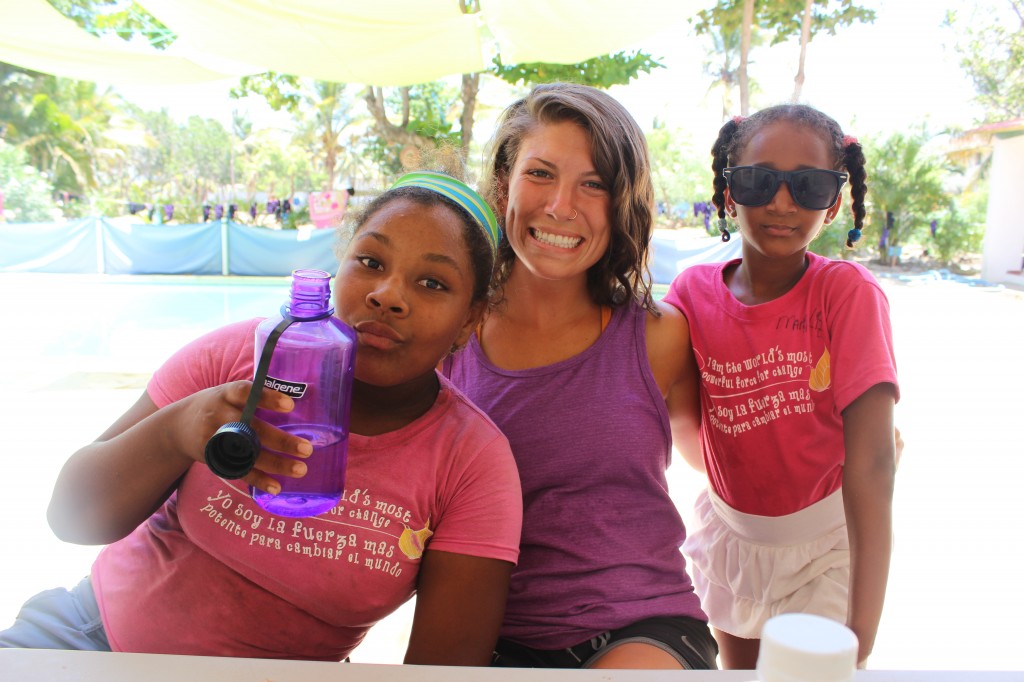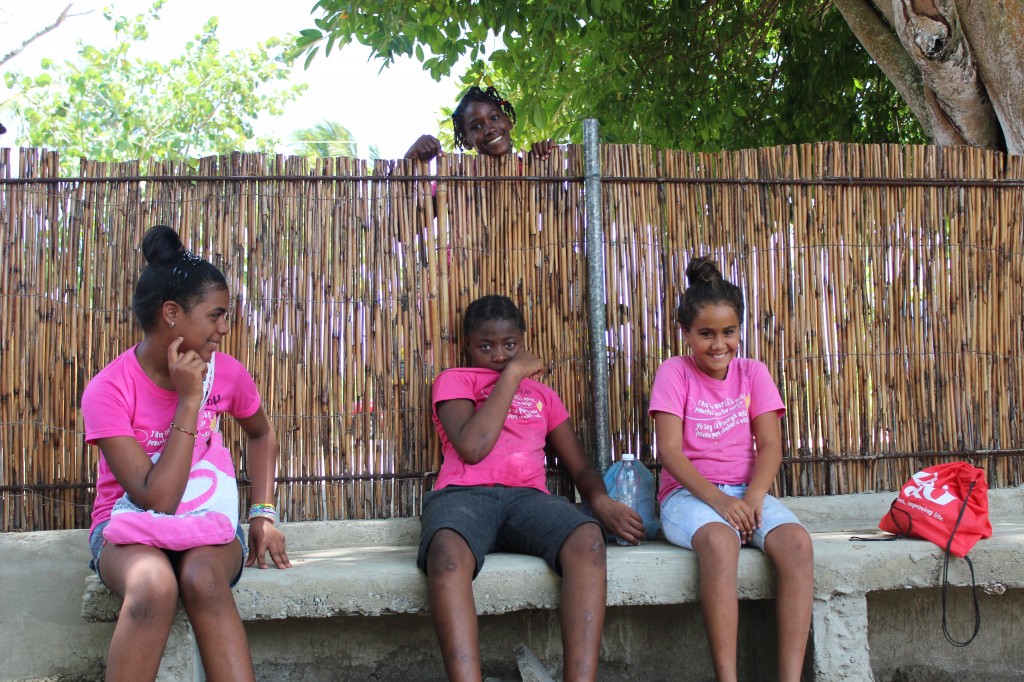This past July, I had the opportunity to travel to the Dominican Republic. I had never before visited the DR, but was told by many that it was a beautiful country and had plenty to offer. The moment you arrive you can smell the local cuisine in the air, and feel the warmth of the Caribbean sun. The island’s welcoming and seemingly carefree locals move about, excited to share their vibrant culture. But that’s not why I was here. Often unseen is the difficult reality of local social issues residing throughout the island. Here, impoverished parents struggle to provide for their families, and sadly, it is not uncommon for girls as young as 12 to marry and become pregnant. With limited access to employment and basic benefits like healthcare, these young women often struggle to support their own children, and consequently the cycle continues. I had traveled here on an EF Service Learning Tour with a group of high school students from Ohio. Partnering with the Mariposa DR Foundation, we were here to help them break the cycle and advance the Girl Effect.
The History of Las Mariposas
To understand the Mariposa DR Foundation, we first need to understand its history. The organization was inspired by three sisters – Minerva, Maria Teresa and Patria Mirabal. Encouraged by their parents to pursue higher educations, the sisters became extremely active in their country’s politics, joining the movement against the Dominican dictator, Rafael Trujillo. Using the code name, “Las Mariposas” (the butterflies), they covertly fought against social injustice, particularly against women, until their efforts ultimately lead to their assassination on November 25, 1960.
Their fight, however, did not go unnoticed. In 1999 the Mirabal sisters were recognized by the United Nations General Assembly and November 25th was named the International Day for the Elimination of Violence Against Women. Through this, they became a symbol for social justice, and helped inspire the development of the Mariposa Foundation.
The Mariposa Foundation and the Girl Effect
The Mariposa DR Foundation for Girls disrupts the vicious cycle of gender inequality by helping Dominican and Haitian women create new lives and opportunities through access to education and healthcare. The foundation provides girls with a safe place where they can create friendships and learn from one another, while also gaining academic and life skills. Heavily focused on health and wellness, and the rights associated with them, the foundation teaches girls how to make educated decisions for themselves and pursue the life that they both want and deserve. Naturally these girls begin to inspire other members of their family and help lift them out of poverty as well. Believing in the ability of adolescent girls to affect generational change and end poverty on both local and global levels is the Girl Effect, and it is the cornerstone philosophy of the Mariposa Foundation.
A Cultural Day in the Life
A typical day at the Mariposa DR Foundation starts off with a daily circle of games between the girls. They then break off into groups, with each group participating in a different activity focused on the skills needed to be successful, independent women.
Our first activity was swim lessons. If you’ve ever been to the Dominican Republic and stayed at one of the many beautiful beach resorts, you may have noticed that for the most part, the staff working by the water consisted of men. Because young girls are expected to stay home and assist with household responsibilities, it is uncommon for them to learn simple life skills, such as swimming. Teaching these little ladies how to swim may not seem like a lot, but imagine growing up around the water and never getting too close to it out of fear of drowning. Living in a small country that is almost entirely surrounded by the ocean, it is important that everyone knows how to swim and feels comfortable doing so.
In the afternoon we gathered to help the girls with their math exercises. I expected that we’d casually walk around and assist them whenever needed. But the exercise turned into something much different. The girls quickly shed their shyness and began enthusiastically competing against one another trying to correctly finish their problems first. Not only was the Mariposa DR Foundation successfully providing an education, but they were also teaching them how to be confident. In this friendly competition you could visibly see that these girls were determined to prove the naysayers wrong. They didn’t want to just learn math, they wanted to show that they could be the best at it.
In addition to our service work, we had daily reflection sessions facilitated by our EF Field Director. One reflection exercise was particularly meaningful—our Field Director, Rossy, asked students to make a drawing that represented one of the UN’s 2015 Millennium Development Goals. When finished, the students presented their drawings to the others, who then tried to guess the goals that they had chosen. Not only did this help drive meaningful conversation amongst the students, but it also put into context the importance of the service work they had completed, and the goals everyone was working towards together.
A mariposa (butterfly) stands as a symbol of transformation, peace and freedom. Today, the Mirabal sisters’ dream for reform and equality is growing into a reality, and it was a privilege being able to experience it.
Alex is a Tour Consultant at EF Educational Tours and focuses on helping teachers in Central and Western Maryland build successful student travel programs. Due to visiting her family in Greece as a child, Alex quickly became eager to travel the world and experience new languages and cultures. This led to a study abroad experience in Italy and several trips throughout Europe and Central America.
SERVICE LEARNING TOURS
On a Service Learning Tour, you and your students work side-by-side with locals on community-driven projects in Africa, Asia or the Americas. EF Partners with established non-profits and NGOs—such as the Mariposa Foundation and Free The Children—to make sure your contributions are both meaningful and sustainable. Through hands-on work and deep exposure to the local culture, students learn vital collaboration and problem solving skills. They return inspired to make a difference at home, too.
Related articles


